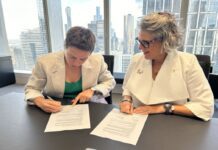
Media Release by Engineers Australia
With Australia experiencing its worst-ever skills shortage, Engineers Australia has released its engineering skills recovery roadmap ahead of the Australian Government’s Jobs and Skills Summit in September.
Engineers Australia CEO Romilly Madew AO says the report is a timely call to action on the dire state of the nation’s skills shortage, and that balancing supply with demand for engineers is a complex and long-term endeavour.
“We know challenges with skilled migration, lack of supply of local engineering graduates and plummeting rates of students taking up STEM subjects are factors. Engineers Australia’s ground-breaking research into Women in Engineering and Barriers to employment for migrant engineers are also telling us that under-utilisation of migrant engineers and lack of understanding around what engineers ‘do’ must also be addressed,” she says.
The Strengthening the Engineering Workforce report identifies five factors influencing the profession’s supply of engineers and provides an inventory of tangible initiatives which – if implemented by government and industry – will lessen current and future shortages.
Strengthening the Engineering Workforce highlights the need for government, industry, the tertiary education sector, and professional associations to work together to overcome policy challenges and greenlight action.
“The long-term solution involves collaborative investment in young people and schools, industry-led development of early career graduates, a greater recognition of the value of women and migrant engineers, and community-wide awareness of the engineering profession,” Ms Madew says.
Engineers Australia Chief Engineer Jane MacMaster stresses that with an engineering job vacancy rate that continues to skyrocket, a looming emissions reduction deadline, and an economic recovery hinging on major infrastructure projects, the effective use of all available engineers must be considered a national strategic imperative.
“Our economy and communities are more reliant on the engineering profession than ever before, and we need to ensure we have enough engineers to design solutions for society’s most complex problems,” Ms MacMaster says.
“Without urgent action on the engineering skills shortage, we will see project costs and timelines blow out. And for critical endeavors such as the transition to net zero emissions and circular economies, we don’t have time to spare.”


















